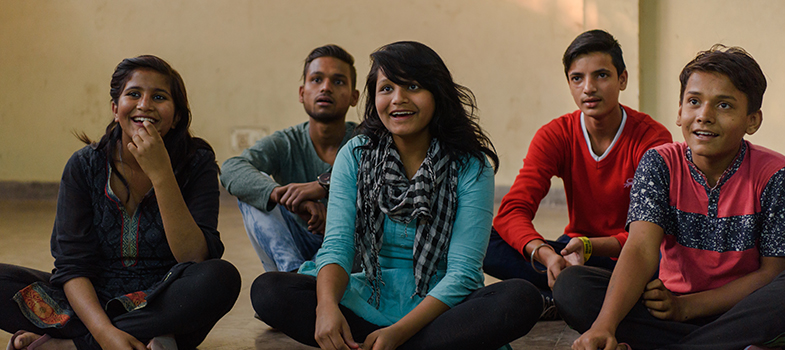1.5 Changing our messages
The final activity below challenges your understanding of risk-based versus positive approaches to teaching about sexual pleasure.
Activity 1.6: Changing messages from risk-based to positive
The table below contains a list of messages in the left-hand column which are all risk-based. Complete the table by writing corresponding positive messages in the right-hand column. We’ve done the first message to start you off.
| Risk-based message | Corresponding positive message |
|---|---|
| If we speak too much and too early about sex with young people, we run the risk of encouraging them to have sex. | Puberty starts between 10 and 13 years old for most children (some earlier). Young people need knowledge about their bodies, sex and sexuality to feel safe and to know their rights; and to be able to say "yes” or "no” to sex, and to enjoy and respect other people. Knowledge can also protect us against abuse. |
| If you have sex you can get sick through STIs or HIV. | |
| If you don’t use a condom you are stupid and irresponsible. | |
| ‘Boys will be boys’ but girls who have sex before marriage can get a bad reputation. |
Discussion
This is how we completed our table - yours might look different to this .
| Risk-based message | Corresponding positive message |
|---|---|
| If we speak too much and too early about sex with young people, we run the risk of encouraging them to have sex. | Puberty starts between 10 and 13 years old for most children (some earlier). Young people need knowledge about their bodies, sex and sexuality to feel safe and to know their rights; and to be able to say "yes” or "no” to sex, and to enjoy and respect other people. Knowledge can also protect us against abuse. |
| If you have sex you can get sick through STIs or HIV. | There are a lot of ways to have sex. Some are safer than others. If you have anal or vaginal intercourse it’s important to use a condom. There are other ways to have sex which are safer than intercourse: touching, masturbating, kissing, rubbing bodies against each other, sucking, licking, etc. Many people enjoy these as much as or more than penetrative intercourse. |
| If you don’t use a condom you are stupid and irresponsible. | Generally, the attitude to people who use condoms or ask their partner to use them is positive. They are considered as responsible, caring and mature persons. |
| ‘Boys will be boys’ but girls who have sex before marriage can get a bad reputation. | Everyone can decide about their own actions. You can enjoy your sexuality, be excited/horny and at the same time be able to respect other people and decide if you want to have sex or not. Everyone is responsible for his/her actions and girls have the same right to sexuality as boys, as well as the same ability to get excited and feel sexual pleasure. It’s society’s attitude towards girls that gives them a bad reputation, not the girls’ behaviour. |
When we take a sex-positive approach with young people we need to think more about what we are saying and give clearer answers.
One of the reasons why risk-based approaches are so common is that it’s easier to just repeat the messages society gives to young people about sex, but as CSE educators, we should be challenging these messages and getting young people to think critically about them.
1.4 Being ‘positive’

